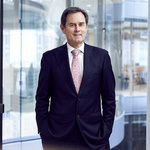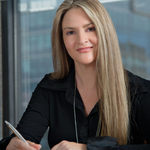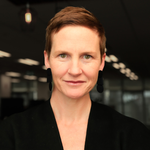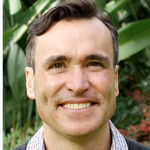- Registrations open
Hilton Hotel Sydney, Ballroom, Level 3
- Welcome to the 2023 IGCC Summit, Bernie Hobbs
- Welcome to Country
- Introductions, Rebecca Mikula Wright, CEO, IGCC
Rebecca Mikula- Wright - Opening Keynote with the Hon Chris Bowen, Minister Climate Change and Energy
Hon Chris Bowen, MP - Welcome message Hon. Dr Jim Chalmers, Treasurer of Australia
Hon Dr Jim Chalmers - Keynote with Ted O'Brien, MP
- 'Out of the Mud' Documentary Preview
Out of the Mud" is a forthcoming documentary by Olivia Katz that takes audiences on an immersive journey behind closed doors and into the minds and hearts of those whose lives were upended by the most catastrophic flood in modern Australian history in February of 2022. From devastation to regeneration — this story follows the unfolding recovery of the region through the eyes of its survivors, advocates, and community leaders and places the Northern Rivers flood crisis within the broader context of climate change, land degradation, and disaster preparedness nationally. Act 3 of the film explores some of the most innovative and transformative solutions emerging in the aftermath of this disaster —painting an achievable and tangible picture of possibility and regeneration post disaster.
- Keynote with Climate Scientist Prof. Mark Howden
Prof Mark HowdenProfessor Mark Howden will provide valuable insights into the climate science in this keynote.
Prof. Howden is the Director of the Institute for Climate, Energy & Disaster Solutions at The Australian National University. - Keynote • Cultivating Climate Courage
Dr Anika MolesworthDr Anika Molesworth believes that climate change presents great challenges but also great opportunities for farmers. This eye-opening and inspiring presentation from a young Australian farmer will leave the audience aware and empowered to help create the best world possible.
After living through a tough 10-year long drought, Anika set forth to learn everything she could about climate change. She studied the land around her, met with farmers both in Australia and abroad, and developed a deep respect for science. This lead her to raise her voice to advocate for a better way of living and co-founded Australia’s leading farmer climate organization, Farmers for Climate Action, that now represents 8,000 farmer members. Hers is a story of courage and hope.
Overall themes
The enormity and complexity of the climate challenge seems daunting – however, with the right skills and know-how the solutions are at hand. This eye-opening and inspiring presentation leaves the audience educated, engaged and empowered.
• Understand how climate change is impacting farmers on the ground and food security.
• Engage with personal stories of food producers on the frontlines of climate impacts.
• Feel empowered and courageous to help create a better future. - Morning networking break
Grab a barista-made coffee and network in the Ballroom foyer.
- The C-Suite Panel Discussion: Driving the climate agenda
Vicki Doyle•Damian Graham•Ian Learmonth•Rebecca Mikula- WrightTop executives will share their experiences driving the climate action agenda within their organisation's in an evolving economic and regulatory environment They will discuss how a changing climate policy environment is impacting their ability to invest in the transition and where the opportunities are and where challenges remain. Don't miss this opportunity to learn from these inspiring leaders and gain valuable knowledge for advancing the climate agenda within your own organization.
- Panel Discussion: Investor engagement on key gaps in Australian Net Zero Company Benchmark assessments
Jonathan Bailey•Karen Durand•Saksham Malhotra•Ian WoodsJoin this session to explore the Climate Action 100+ Net Zero Company Benchmark and its assessment of focus companies' performance in emissions reduction, governance, and disclosure.
The recently launched Phase 2 of Climate Action 100+ shifts the focus from corporate climate-related disclosure to the implementation of climate transition plans. While progress has been made, focus companies now need to move beyond disclosure to action, and investors are looking for improvement in areas such as setting ambitious targets, disclosing decarbonisation strategies, and aligning capex with emissions goals.
Discover how investors use the Climate Action 100+ Company Benchmark in company engagement, how companies align their climate transition plans and different types of active stewardship tools. - Lunch break
Lunch will be served in the Ballroom foyer
- Panel Discussion: Deforestation Nation or the Lucky Country?
Alexandra Banks•Tim Beshara•Dr Virginia Marshall•Amanda Richman•Jo SaleebaJoin this discussion highlighting the critical role of natural systems in addressing climate change threats. Climate-focused investors are increasingly concerned about deforestation and biodiversity impacts in their portfolios. The EU's regulations on deforestation-free supply chains serve as an example. This session will explore the implications of these regulations for Australian producers and examine how leading investors are managing nature-related risks in their portfolios. The event will also feature the launch of a groundbreaking report on the new EU regulations.
Don't miss this opportunity to gain insights into the intersection of climate change, investment, and nature conservation.
Alexandra Banks
Partner in the Climate Change and Sustainability Services at EY
Tim Beshara
Manager of Policy and Strategy at The Wilderness Society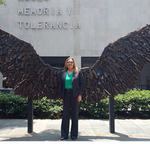
Dr Virginia Marshall
Research Fellow at Australian National University
Amanda Richman
Ethical Stewardship Lead at Australian Ethical Investment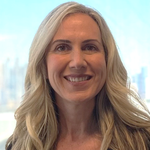
Jo Saleeba
Global Head of Sustainability and Impact at New Forests Asset Management Pty Ltd
- Panel Discussion: All Aboard! Mandatory climate disclosures are leaving the station
April Mackenzie•Rebecca McCallum•Amy Quinton•Michael SalvaticoIn this session, we will explore the evolving landscape of mandatory climate-related disclosures in Aotearoa New Zealand, Australia, and around the world. The International Sustainability Standards Board has released its inaugural standards, setting the global baseline for climate-related disclosures. Major markets are establishing mandatory disclosure requirements. We will delve into these standards and regulations and examine their implications for investors.
- Afternoon networking break
- Panel Discussion: Greenwash vs Ambition: A dilemma for regulators and investors
Jodie Barns•Jessica Cairns•Daisy Mallett•Carl Prins•Claire LaBouchardiereAchieving the goals of the Paris Agreement will require ambitious commitments and action. How can investors aim high amid concerns about greenwashing? What is a genuine target and what is merely marketing? How can regulators ensure market integrity without stifling ambitious targets from industry and investors?
Convening regulator and regional investor perspectives, this facilitated dialogue explores ways forward that drive real-world outcomes – something that is in everyone’s interest. - Panel Discussion: Women in finance driving climate action
Nishtha Aggarwal•Helga Birgden•Nicolette Boele•Dr Joanna Nash•Jessica MartinOne of the stand-out sessions each year at the IGCC Summit is our Women in Finance panel. This session promises to be another great discussion with some of the leading women in climate and finance.

Nishtha Aggarwal
Financed Emissions Analyst at Climate Energy Finance
Helga Birgden
Global Chair | Mercer Sustainable Investment at Mercer
Nicolette Boele
Expert Adviser, Electrification of Everything at Smart Energy Council
Dr Joanna Nash
Senior Quantitative Portfolio Manager at Realindex
Jessica Martin
Economic Officer at U.S. Embassy.
- Closing remarks
- Cocktail reception
Join industry colleagues and sponsors for a drink and canapes
- Gala Dinner and IGCC Climate Awards
Christina Tonkin
- Registration desk open
Hilton Hotel Sydney, Ballroom, Level 3
- Welcome, Bernie Hobbs
- Roadmap to Resilience Launch
Rebecca Mikula- Wright - Opening Keynote
Hon Jenny McAllister - Keynote • The Opportunities of Climate Change
Frank Jotzo - Panel Discussion: Unlocking Australian sector targets and pathways
Daniela Jaramillo•Dimitri Lafleur•Paul Richards•Kylie TurnerExplore investor and industry requirements for domestic transition guidance and sector pathways to support decarbonisation and climate risk assessment. The session will delve into the need for Australia-specific guidance and sector pathways, and the associated role of government. Discover how pathways are leveraged to set decarbonisation goals and disclose climate-related financial risks while exploring challenges and gaps for Australian investors and companies.
- Keynote • ISSB standards • from issuance to implementation
Sue Lloyd - Morning networking break
- Panel Discussion • Building and escalating policy action in 2024
Brad Archer•Anna Freeman•Erwin Jackson•Kate TurnerOver the past year, there has been a significant increase in climate policy action both in Australia, New Zealand, and globally. The introduction of the USA's Inflation Reduction Act has been a transformative development, spurring a race for clean energy subsidies worldwide. Exciting initiatives such as the establishment of new 2035 emissions targets, the expedited transition in the energy sector, and the formulation of sector-specific pathways to achieve a 1.5°C target are on the horizon. How are we progressing towards a net zero emissions economy and what major policy issues will affect investors in the next year?
- Panel Discussion: Is investor engagement working? Next steps to a clean industrial economy.
Zachary May•Richard Proudlove•Anna Skarbek•Dr Fiona WildThis session aims to pave the way towards a clean industrial economy. The panel will explore necessary actions and escalations from investors, industries and policymakers to achieve tangible progress in the real economy aligned with the 1.5-degree goal.
To date, investor engagement has helped drive ambition, yet progress is still below expectations in many key sectors. Uncertainty remains around the future availability of crucial new technologies expected to decarbonise hard-to-abate sectors.
The discussion will centre around the next steps to accelerate progress and address key challenges, such as building markets for low-carbon products and services, and scaling up emerging green technologies. - Lunch Break
- Panel: Discussion: Vital Regions: Unlocking capital for Australia's Just Transition
Samantha Bayes•Sandi Middleton•Chris Newton•Kate DonnellyDiscover the opportunities for institutional investors to drive a net-zero aligned transformation of Australia's regional economies, unlocking lasting opportunities and supporting a just transition for affected workers and communities.
With an estimated $420 billion investment required to re-position Australia's emissions-intensive economy by 2050, early co-investment from institutional investors is crucial. Hear case studies from the panel and a preview of findings from an upcoming IGCC research paper that explores how to address investment barriers in Australia's transitioning regions and unlock opportunities. Explore examples of successful co-financing models that can be used to link transition needs with private capital and deliver a just transition for all. - Panel Discussion: How to build resilience
Andrew Sellick•Kate Simmonds•Kuldeep Yadav•Crystal FlemingAdaptation is often viewed as a cost-minimisation exercise. However, as we decarbonise, there are significant opportunities to build safer, more resilient communities, and create value for investors. In this session, panellists will discuss how they are building resilience within their own businesses and the communities they operate in.
- Afternoon networking break
- Panel Discussion: Innovations in Climate Solutions: Crowding in Investment
Peter Castellas•Sean Kidney•John Martin•Ciaran McCormack•Kate VidgenAs the climate crisis intensifies, new solutions are emerging for a sustainable economic model. Join us to explore the investment opportunities that are emerging as part of this transition. With estimates of $9 to $12 trillion required in climate solutions investment annually by 2030, the opportunities for investors in this sector are significant.
Join us to discuss where smart dollars are going across a range of asset classes and investment opportunities. - Closing Panel Discussion
Join the panel as they reflect on the key takeaways and outcomes across the two-day Summit.









